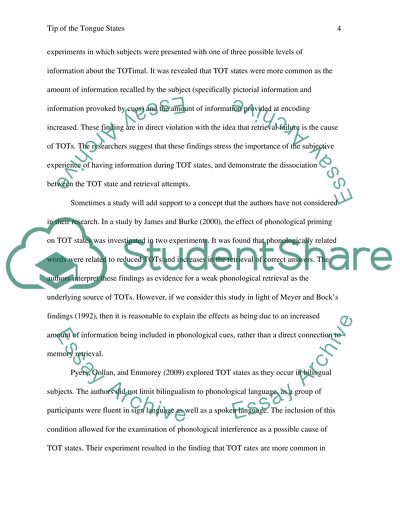Cite this document
(“Tip-of-the-tongue states: lexical retrieval failure or metacognitive Term Paper”, n.d.)
Retrieved from https://studentshare.org/psychology/1433764-tip-of-the-tongue-states-lexical-retrieval-failure
Retrieved from https://studentshare.org/psychology/1433764-tip-of-the-tongue-states-lexical-retrieval-failure
(Tip-of-the-Tongue States: Lexical Retrieval Failure or Metacognitive Term Paper)
https://studentshare.org/psychology/1433764-tip-of-the-tongue-states-lexical-retrieval-failure.
https://studentshare.org/psychology/1433764-tip-of-the-tongue-states-lexical-retrieval-failure.
“Tip-of-the-Tongue States: Lexical Retrieval Failure or Metacognitive Term Paper”, n.d. https://studentshare.org/psychology/1433764-tip-of-the-tongue-states-lexical-retrieval-failure.


